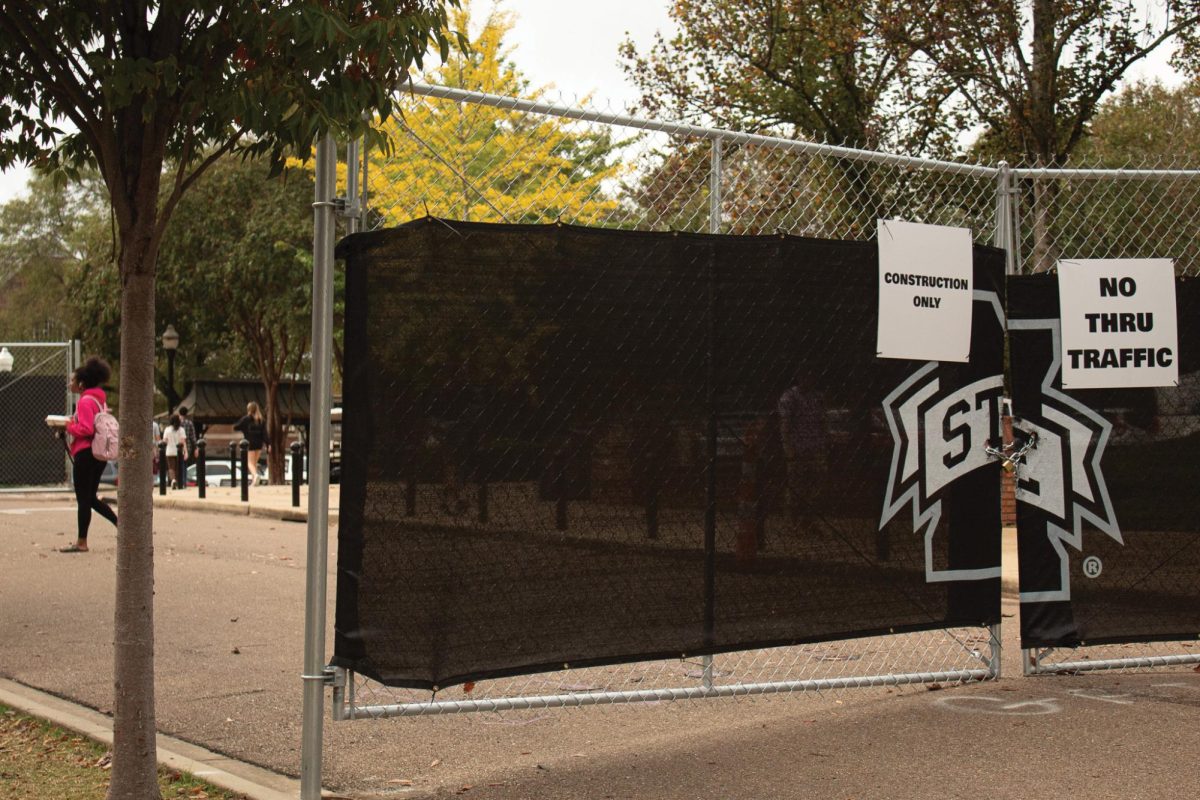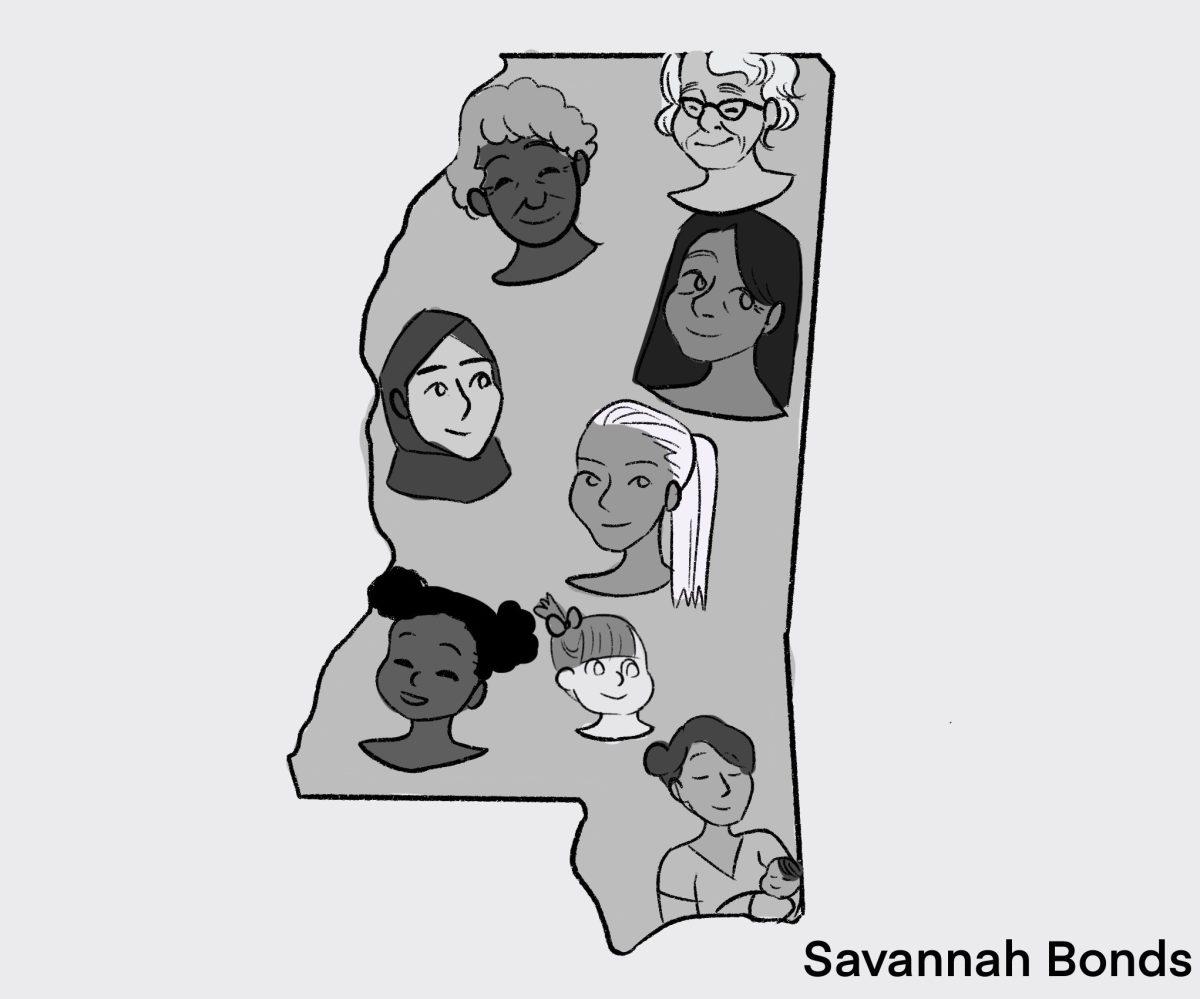Women have come a long way throughout Mississippi’s history. From being seen as meek and subservient to influential leaders in the government, women have shown resilience and courage while advocating for equality in Mississippi’s society.
Historically, women’s roles typically revolved around home life. Cooking, cleaning and raising children were part of a woman’s daily routine for thousands of years. Women also played a major part in farming and agriculture in Mississippi. Over the past 200 years, women’s roles have evolved into a more coequal level with men. Women work typical jobs, attend college and hold government positions.
In Mississippi, women have taken a little longer than in other states to grow into their new societal roles. According to professor of history at the University of Southern Mississippi (USM) Andrew Haley, even when women began breaking the glass ceiling, their societal responsibility was similar to their domestic roles. Women often led movements such as reforming child labor laws, changing the electoral college process and eliminating or controlling alcohol consumption.
“Some people refer to this as social housekeeping,” Haley said. “Just like they had to clean their homes, they had to clean society as a whole.”
Anne Marshall, a history professor at Mississippi State University, said Jim Crow laws prevented Black men and women from voting, beginning in the 1890s. In 1920, the 19th Amendment of the U.S. Constitution — the Women’s Voting Rights Act — was passed. However, Mississippi legislators did not ratify it until 1984. Women’s suffragists advocated for the right to vote to keep Black Americans from voting. Thus, white women could vote in 1920, but Black American women could not vote until 1965.
Between 1960 and 1984, many Mississippi women held governmental positions, including lieutenant governor, so not having the 19th Amendment ratified until 1984 did not hinder women from assuming new roles. Evelyn Gandy was the first woman elected lieutenant governor of Mississippi in 1975.
However, women’s roles in Mississippi differed according to race and class. Minorities were often decades behind the curve due to slavery, segregation and racism.
Marshall said post-Civil War Southern whites stereotyped Black women as fulfilling the ‘Mammy’ role. Black women were at a disadvantage at this time because most jobs offered to them were low paying with no chance to rise in company ranks. Wealthy white families who owned enslaved people often forced Black women to breastfeed the white children. Thus, the Black woman’s child could not drink his or her mother’s milk. The stereotype of the ‘Mammy’ role is still in place to this day, despite all the changes in society.
This does not mean Black women have not fought against this status quo, however. Rebecca Tuuri, a history professor at USM specializing in African American and women’s history, said Black American women joined women’s activist groups, like the National Association of Colored Women, clubs, church groups, sororities and professional associations to enhance their leadership roles. Tuuri said they also joined clubs with Black American men and even white women. According to Tuuri, Black American women faced racism from the white women in those clubs but were able to reap the benefits the clubs provided.
Interestingly, Native Americans, especially in the southeast, have a matrilineal society, tracing everything to the mothers. When couples marry, the man takes the woman’s last name and moves to the woman’s house. The men hunted and went to war, and the women farmed and worked the fields.
This seems shocking compared to other Mississippi cultures because of the predominantly patrilineal society. Because of the Native American women of Mississippi, the state’s legislators passed the Married Women’s Property Act in 1839, giving married women the right to own property, including enslaved people.
Kimberly Kelly, associate professor of sociology and director of gender studies at MSU, said people often assume women mainly stayed at home and cared for the children. But in fact, she said that is a privileged role only wealthy women were able to have. As for any other group of women, they had to work to put food on the table because of stagnated wages. Women worked in chicken or catfish plants, the service or retail industries or on the farm.
Kelly also said women often face the motherhood penalty in the workplace. The motherhood penalty is how women are treated differently for being working mothers. She said for every child a woman has, her salary goes down by a small percentage. This salary decrease usually has nothing to do with the woman’s work ethic. The motherhood penalty centers around the idea that working mothers are less available to their jobs because of their children.
While women have come a long way, there are still plenty of areas where women need inclusion. Primarily male-dominated fields like STEM and politics are opening their doors to women, but men still greatly outnumber their female counterparts.
In the law profession, women are increasing in numbers. However, Jennifer Ingram Johnson, president of the Mississippi Bar Association, noticed a disparity in the numbers between women who attend law school and women who become practicing lawyers.
Johnson said Mississippi’s law schools are 48% female, but only about 30% of practicing lawyers are women. Part of Johnson’s work in the Mississippi Bar is to close the gap between those two percentages. She said the gap could exist because of issues passing the bar examination, women leaving the state to practice law elsewhere, starting to practice law and realizing it is not the right fit or due to the societal expectations of women.
Johnson explained how the law field can push to include more women and minorities, but her sentiments can apply to the broad range of fields that still see gender disparities in their ranks.
“It needs to be an intentional process,” Johnson said, “something that those that are in power find necessary.”
























































































